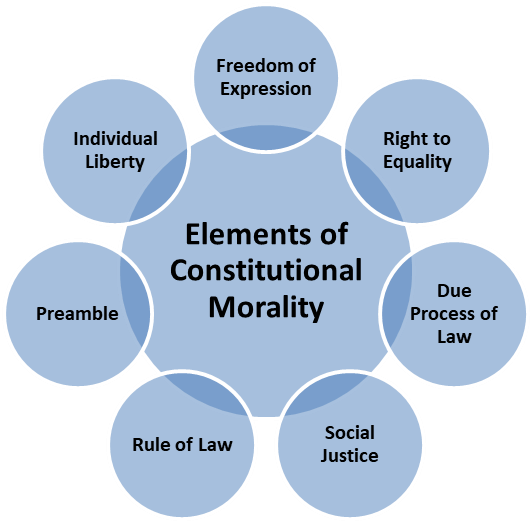Constitutional Morality: Origins, Evolution, and Contemporary Relevance
Why in the news?
Indian courts increasingly invoke constitutional morality to interpret laws, influencing key issues like LGBTQ+ rights, free speech, and national security. Rooted in George Grote’s philosophy and emphasized by Dr. B.R. Ambedkar, it balances constitutional adherence with reform.
Understanding Constitutional Morality:
- Constitutional morality refers to a civic culture of respecting constitutional forms, institutions, and processes while applying public reason, self-restraint, and critique.
- Courts in India increasingly use constitutional morality to interpret laws, as seen in Navtej Singh Johar (2018) and Joseph Shine (2018)
- It serves as a safeguard against fluctuating public morality and ensures legal principles remain just and fair.
- Contemporary debates on LGBTQ+ rights, women’s entry into temples, free speech, and national security highlight the relevance of this concept.
Commitment and Critique in Constitutional Morality:
- Constitutional morality demands adherence to constitutional principles even when outcomes do not align with personal beliefs.
- It balances respect for established laws while allowing critique and reform of constitutional processes.
- Unlike constitutional patriotism, which demands political allegiance, constitutional morality focuses on managing differences through agreed procedures.
- This concept helps maintain constitutional commitment without dogmatic fundamentalism, ensuring a balance between reverence and reform.
Historical Origins and Ambedkar’s Perspective:
- The concept was first articulated by British historian George Grote, who described Athenian democracy as an outcome of constitutional morality—a paramount reverence for constitutional forms.
- Grote argued that well-drafted rules alone cannot sustain a constitution; a civic culture of respect and adherence is necessary.
- Dr. B.R. Ambedkar, in his 1948 Draft Constitution speech, emphasized the need to develop and internalize constitutional morality in India to ensure democracy thrives peacefully.
- He warned that a constitution could be subverted without altering its form, if its administration contradicts its spirit.




